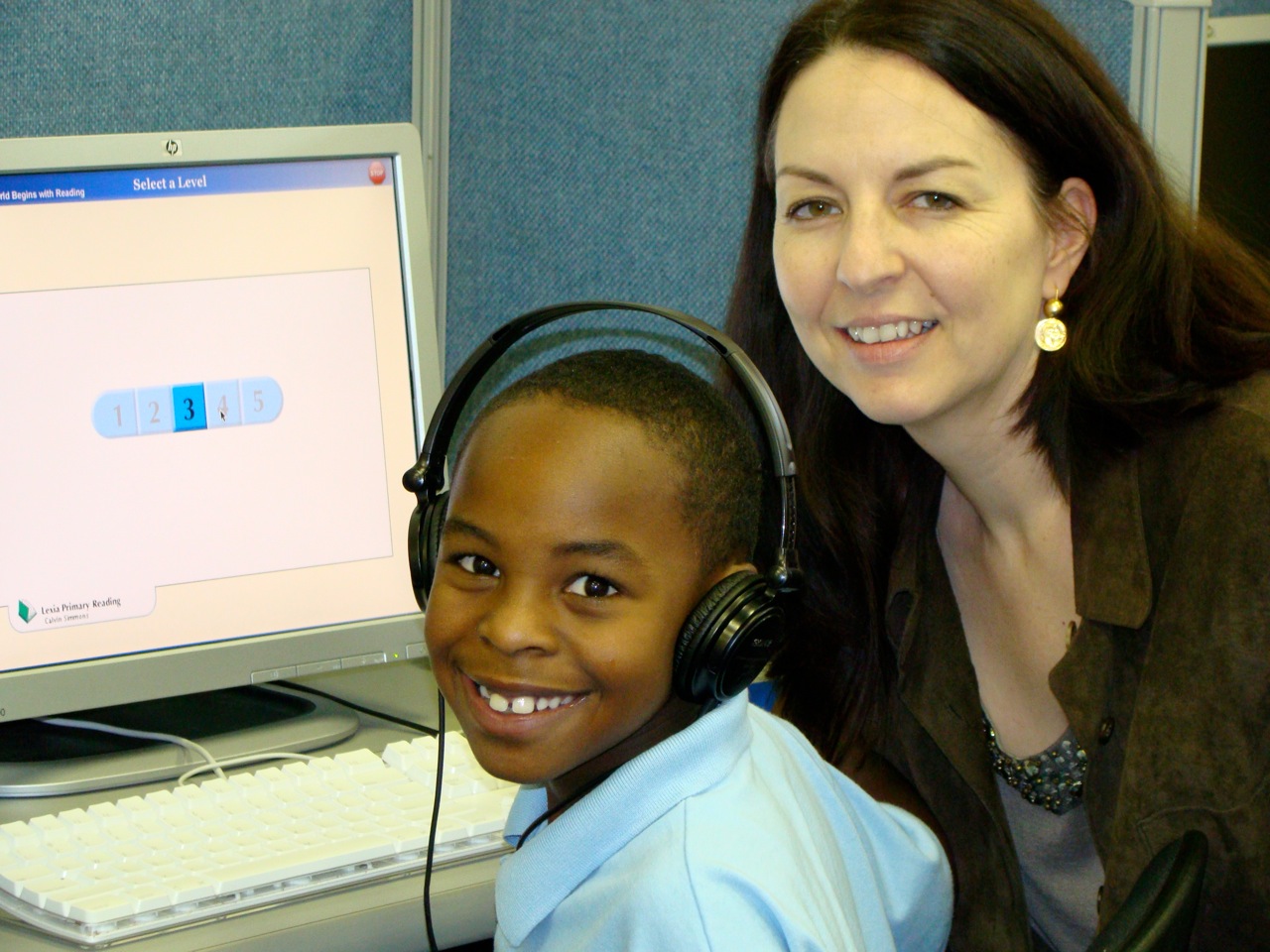
by PRIDE Reading Program Admin | Mar 5, 2012 | News & Events
Our summer program is our most popular program of the year. Pride’s teachers are all credentialed and certified in Orton-Gillingham methodology. Pride programs are always taught one-on-one.
Pride’s fun-filled yet intensive one-on-one reading program has become so popular that we even draw families from all over the globe. Recent students have come to Pride from China, Japan, Saudi Arabia, France, England, Canada and even the San Fernando Valley.
Sample Daily Schedule:
9:00 – 10:00: Orton-Gillingham Reading Instruction
10:00 – 10:30: Computer Based Reading Instruction
10:30 – 11:00: Snack, Fun and Movement
11:00 – 11:30: Written Expression
11:30 – 12:00: Orton-Gillingham Reading Instruction
Times:
9:00am – 12:00pm or 1:00pm – 4:00pm Monday – Friday
Our Summer 2012 program runs weekly from June 25th – August 31st. You can sign up for any weeks you like during those dates.
Tuition is $980 weekly
Take advantage of our Discounts!
- 10% off early registration by April 31, 2012
- 10% off for returning families
- 20% off for bringing a friend
- 15% off if you register for 4 or more weeks
Space is limited and our summer sessions fill up quickly.
Call us today at 866-774-3342 to request a registration form. Or email us at info@pridelearningcenter.com

by PRIDE Reading Program Admin | Aug 23, 2011 | A PRIDE Post, Auditory Processing Disorder
By Karina Richland, M.A., E.T.
- Is your child easily distracted or bothered by loud or sudden noises?
- Are conversations difficult for your child to follow?
- Are noisy environments upsetting?
- Are verbal (word) math problems demanding?
- Does your child have difficulty following directions?
- Is abstract information tough to interpret?
- Does your child struggle with reading, spelling, writing, or other speech-related language difficulties?
Central auditory processing disorder (CAPD) occurs when the ear and the brain do not coordinate together completely. Many of the behaviors associated with central auditory processing disorder also appear in other conditions such as learning disabilities (LD) and attention deficit disorder (ADHD). The symptoms in each individual can range from mild to severe and only a trained professional, such as a speech-language pathologists and an audiologist who specialize in CAPD, can determine if your child actually has a central auditory processing disorder.
If your child does have central auditory processing disorder and finds it difficult to concentrate and follow directions, there are numerous strategies that parents can implement for their child.
What was I supposed to do again?
In order to help a child with CAPD follow directions, try reducing background noises, always have the child look at you when you are speaking and use simple, expressive sentences. Speaking at a slightly louder volume and at a slower tempo will also help significantly. Have your child repeat the directions back to you aloud a few times and be certain that they understand the directions they are repeating and not just mimicking your voice.
I left my book at school.
A student with CAPD will thrive on routine and structure. Teach your child how to focus and cope in chaotic environments (like middle school). Before going home for the day, for instance, have the child check his or her assignment book and list what he or she needs to take home that day.
I can’t concentrate; it’s too loud in here.
At school the child should sit towards the front of the room facing the teacher with his or her back to the windows, doors, and other sources of distraction. The teacher can periodically touch the child’s shoulder to remind him or her to focus or get ready for a transition. Teachers should use lots and lots of visual aids jotting down instructions or key words on the board, and providing simple written outlines. For younger students a drawing works fine as a reminder.
At home, provide the child with a quiet study place. Keep the TV turned off and any outside stimuli far away. Make sure the work desk is free of clutter and well organized. Maintain a peaceful, organized lifestyle that also encourages good eating and sleeping habits and keeping a neat room and desk.
Teachers and parents both need to remember that central auditory processing disorder is a real condition. The symptoms and behaviors are not within the child’s control. Children with CAPD are not being defiant or being lazy. Help them build a strong self-esteem and learn to advocate for themselves, as they get older. Keep it positive and keep life fun!
__________________________________________________________________________________________
Karina Richland, M.A., E.T. is the Managing Director of Pride Learning Centers, located in Los Angeles and Orange County. A former teacher for Los Angeles Unified School District, Ms. Richland is a Reading and Learning Disability Specialist. Ms. Richland speaks frequently to parents, teachers, and professionals on learning differences, and writes for several journals and publications. You can reach her by email at: info@pridelearningcenter.com or visit the Pride Learning Center website at:
www.pridelearningcenter.com
by PRIDE Reading Program Admin | Aug 2, 2011 | Orton-Gillingham
A Book Review by Karina Richland, M.A., E.T.
The Shut-Down Learner by Richard Selznick, PhD, is a very parent friendly book written for parents and teachers of children and students with learning disabilities, primarily dyslexia.
The Shut down learner is a visual-spatial child that has a unique set of strengths and weaknesses. Dr. Selznick refers to these children as “the Lego kid.” The Lego kid does not succeed in school because others do not understand and value his strengths and everyone focuses too much on his weaknesses.
The weaknesses of these children are very low linguistic-verbal intelligence. They struggle considerably with reading, spelling and writing. Despite attempts from special educators and remedial teachers to help these children fail in these areas of weakness, the progress for these children is slow and often even unrecognizable.
The strengths of the Shut-Down Learner are excellent spatial and visual perceptual organization skills. This attribute is his most defining indicator and the author stresses this strength throughout the entire book. The SDL child can visualize things well. They learn through visualization and not through language.
The High-Spatial Characteristics include:
- Lego kid
- Loves puzzles
- Engages for hours with hands-on-activities
- Likes taking things apart to see how they work
- Enjoys hooking things up, such as entertainment systems
- Good awareness of visual detail
- Excellent visual recall
- Does well with psychological assessment tasks that involve spatial analysis
- Enjoys doing tasks and is movement-based
The curriculum is a major obstacle for these students. They will not thrive under the regular curriculum because of their severe language acquisition deficiencies. Dr. Selznick recommends Orton-Gillingham remediation as part of the student’s education. This instruction will help these children overcome the worst of their deficiencies. The SDL child will also need heavy focus on the areas in which he can excel and have confidence in. These are the areas of visual-spatial and kinesthetic intelligences.
I did enjoy reading this book and would recommend it to parents and teachers of struggling readers. I do want to mention though, that not all children with dyslexia and learning disabilities are gifted in the visual-spatial skills. I work with many students with dyslexia who do not perform well in visual-spatial tasks and do not enjoy building with legos or taking engines apart.
Multisensory learning is the key factor and will benefit struggling readers. We all learn a different way, and we each have our own set of strengths and weaknesses. It is so important to always point this out to our children.
____________________________________________________________________________________________
Karina Richland, M.A., E.T. is the Managing Director of Pride Learning Centers, located in Los Angeles and Orange County. A former teacher for Los Angeles Unified School District, Ms. Richland is a reading and learning disability specialist. Ms. Richland speaks frequently to parents, teachers, and professionals on learning differences, and writes for several journals and publications. You can reach her by email at: info@pridelearningcenter.com or visit the Pride Learning Center website at:
www.pridelearningcenter.com

by PRIDE Reading Program Admin | Feb 22, 2011 | A PRIDE Post, Auditory Processing Disorder, Autism
Many of our students at Pride Learning Center have been diagnosed with auditory processing difficulties due to CAPD, ADHD, dyslexia, autism, or a learning disability. Often parents will ask me the question, “what can I do at home to help?” I have composed a list of activities that strengthen and support auditory processing deficits that are simple, quick and easy to incorporate at home.
a
1. Listen for Sounds. Have your child sit at your desk, close their eyes and identify sounds that you make. You can drop a pencil, bounce a ball, tap on the window, tear a paper, use a stapler, cut with scissors, open the door, type on your computer, sip a cup of coffee or write with a marker. Trade roles and then let the child make different sounds that you have to identify.
2. Take a Nature Walk. Sit outside under a tree and listen for various sounds outside of the house. Sounds like birds chirping, airplanes flying overhead, cars driving by, voices of children playing are fun to identify. You can have a little notebook on hand and keep a list of all of the different sounds you came across.
3. Repeat a Pattern. Sit across from your child and clap your hands to a rhythmic pattern alternating between slow and fast tempos. Have your child repeat the pattern. You can also use various instruments, play a drum or bounce a ball to a variety of rhythms. Switch roles and let your child be the sound leader as well.
4. Hide and Seek. Hide a metronome or a ticking clock somewhere in your home. Have your child find it by locating the sound. Another variation of this game can be played outside. You can hide somewhere and blow a whistle. The child will then follow the sounds to find where you are hiding.
5. Sing Songs. Sing songs together that involve repeating previous verses, such as “Old MacDonald Had a Farm”, “Over in the River”, “The Twelve Days of Christmas” and “The Green Grass Grows All Around.”
6. Read Rhyming Books Together. For beginning readers, repetitive and rhyming books help children listen carefully to the similar sounds of rhyming words. Some great rhyming books are “Hop on Pop”, “Fox in Socks”, “Goose on the Loose” and “Goodnight Moon.”
____________________________________________________________________________________
Karina Richland, M.A., E.T. is the Managing Director of Pride Learning Centers, located in Los Angeles and Orange County. A former teacher for Los Angeles Unified School District, Ms. Richland is a reading and learning disability specialist. Ms. Richland speaks frequently to parents, teachers, and professionals on learning differences, and writes for several journals and publications. You can reach her by email at karina@pridelearningcenter.com or visit the Pride Learning Center website at: www.pridelearningcenter.com
by PRIDE Reading Program Admin | Dec 16, 2010 | A PRIDE Post, ADHD, Autism
Learning Disability and Gifted?
Gifted children with learning disabilities are known as “twice exceptional.” In the educational system a child labeled both “gifted” and “learning disabled” is rare. Most children are labeled as either remedial and special needs or honors and college prep. Rarely are these children viewed as a combination of the two. Most educators do not expect a gifted child to have dyslexia or even realize that a child with ADHD (attention deficit disorder) might also be brilliant in creative writing or calculus. Identifying a child as twice exceptional is very difficult since these children may be compensating for and masking their learning disability, and in turn their disabilities may disguise their giftedness.
I recently read a book titled, Light Up Your Child’s Mind. Dr Renzulli and Dr. Reis write about the crucial role parents and educators can play in their children’s development. They discuss that intelligence; creativity and motivation to achieve can be fostered in bright children, even unmotivated ones. The book provides tips on how to identify and encourage giftedness in children, while still helping the child succeed within the educational system. An entire section is devoted to resources and suggestions on where to go to help your child develop constructive and interesting projects within his or her area of giftedness and interests. These include:
- Mentors-in-print
- Web site enrichment activities
- Contests and competitions
Light Up Your Child’s Mind presents a practical guide for teachers and parents to help their children “light up” a love of learning forever. This is an easy read and is well organized into three different sections:
- What is this thing called giftedness
- Practical paths to developing your child’s gifts and talents
- Special Considerations
Originally, I borrowed the book from the library, but then ended up buying it since I found this chapter on resources to be extremely valuable. I now have the book on my desk so that whenever my students need a stimulating activity to work on I use the book as a reference guide.
Raising a gifted child and developing those gifts requires a parent or teacher that is open minded, flexible and ready to invest the time and effort needed. Gifted children all have unique strengths and interests that should be recognized and developed.
___________________________________________________________________________________
Karina Richland, M.A., E.T. is the Managing Director of Pride Learning Centers, located in Los Angeles and Orange County. A former teacher for Los Angeles Unified School District, Ms. Richland is a reading and learning disability specialist. You can reach her by email at karina@pridelearningcenter.com or visit the Pride Learning Center website at: www.pridelearningcenter.com



